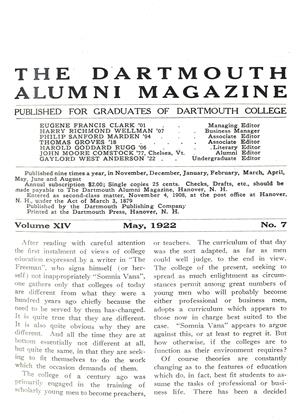For the first time in a number of years the freshmen found the rules imposed upon them so irksome that they organized an open rebellion. Within thirty minutes after the outbreak, the sophomores had very effectively put it down and were masters of the campus.
Acting, as they later stated, upon the unofficial advice of some prominent seniors, the freshmen organized their revolt in an attempt "to bring about unity in the class in preparation for the class picture." So far as fostering class spirit was concerned, the battle was a complete success from the standpoint of both classes.
The affair was planned at a secret freshman class meeting held the evening before. The following morning they sallied forth in sweaters, minus coats and freshman caps. At the entrance to the freshman commons they met a little opposition by a small group of sophomores who had got wind of the plan. By chapel time the sophomores were very hastily organized to meet them as they went to chapel. With the first stroke of the bell the freshmen emerged from the commons in a body and proceeded to chapel, without adhering to the marked paths. They met some opposition here, but the majority managed to get in, since the sophomores had not yet been entirely mustered to the defense. Yet there were many who did not attend service, but were sent back to the dormitories after rather too intimate contact with various mud puddles which were at hand.
The entire sophomore class remained outside of chapel to greet the freshmen as they came out. After allowing the two upper classes to leave the building, the freshmen attempted to rush the front door, but were met by the entire sophomore forces. A general free-for-all lasted for fifteen minutes, at the end of which time every freshman had lost at least his sweater. The scrap was made more interesting for the spectators and more expensive for the participants by the mud and slop of spring. By a quarter past eight the freshmen had been completely routed and had disappeared from the Campus, except for an occasional man who was unusually bold and indiscreet. For the next hour occasional individual fights occurred at various parts of the Campus, but the organized revolt had been completely put down.
The rough and ready days of the nineties may have passed, but whoever saw the relish with which the two lower classes rolled each other around in the mud, with very frequent use of even more violent means of attack, can have no doubt as to the future of campus traditions.
 View Full Issue
View Full Issue
More From This Issue
Article
-
 Article
ArticleDARTMOUTH AND THE AMERICAN UNIVERSITY UNION IN PARIS
February 1918 -
 Article
ArticleEMPLOYMENT OPPORTUNITIES GIVEN BY DARTMOUTH CLUB
MARCH, 1927 -
 Article
ArticleUndergraduate Editor
MAY 1931 -
 Article
ArticleChart Number I. Year by Year
February 1934 -
 Article
ArticleFaculty Articles
May 1946 -
 Article
ArticleDivers Notes & Observations
October 1993 By "E. Wheelock"







